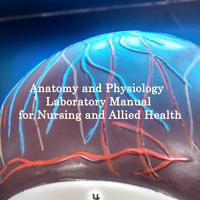Search
Books+
Searching 1,730 books
Search related to the career Biomedical Equipment Technician
Responsibilities of a Biomedical Equipment Technician:
1. Equipment Installation and Maintenance: Biomedical equipment technicians are responsible for installing, inspecting, calibrating, and maintaining a wide range of medical equipment and devices used in healthcare facilities. This includes troubleshooting and repairing equipment to ensure proper functionality.
2. Equipment Testing and Evaluation: They perform regular testing and evaluation of medical equipment to ensure compliance with safety and quality standards. This involves conducting performance tests, analyzing data, and making recommendations for equipment upgrades or replacements.
3. Preventive Maintenance: Biomedical equipment technicians develop and implement preventive maintenance schedules for medical equipment. They perform routine inspections, cleaning, and adjustments to prevent equipment failures and ensure optimal performance.
4. Equipment Documentation: They maintain detailed records of equipment maintenance, repairs, and inspections. This includes documenting equipment specifications, service history, and any modifications made. Accurate documentation is crucial for regulatory compliance and tracking equipment performance.
5. Equipment Troubleshooting and Repair: When medical equipment malfunctions or breaks down, biomedical equipment technicians diagnose the problem and perform necessary repairs. They use specialized tools and diagnostic equipment to identify issues and replace faulty components.
6. Training and Support: They provide training and technical support to healthcare staff on the proper use and maintenance of medical equipment. This may involve conducting training sessions, creating user manuals, and offering troubleshooting assistance.
7. Inventory Management: Biomedical equipment technicians assist in managing equipment inventory by tracking and ordering necessary supplies, parts, and accessories. They ensure that the facility has an adequate supply of functioning equipment and coordinate with vendors for procurement.
8. Compliance with Regulations: They adhere to relevant regulations, standards, and guidelines such as those set by the Food and Drug Administration (FDA) and the Joint Commission. Biomedical equipment technicians ensure that equipment meets safety, performance, and quality requirements.
9. Collaboration: They collaborate with other healthcare professionals, including biomedical engineers, clinicians, and administrators, to address equipment-related issues, implement improvements, and support patient care.
10. Stay Updated: Biomedical equipment technicians stay up-to-date with advancements in medical technology and industry trends. They attend training programs, workshops, and conferences to enhance their knowledge and skills in equipment maintenance and repair.
These responsibilities may vary depending on the specific healthcare setting and the complexity of the equipment being serviced.
Source: Various AI tools
Searched in English.

















